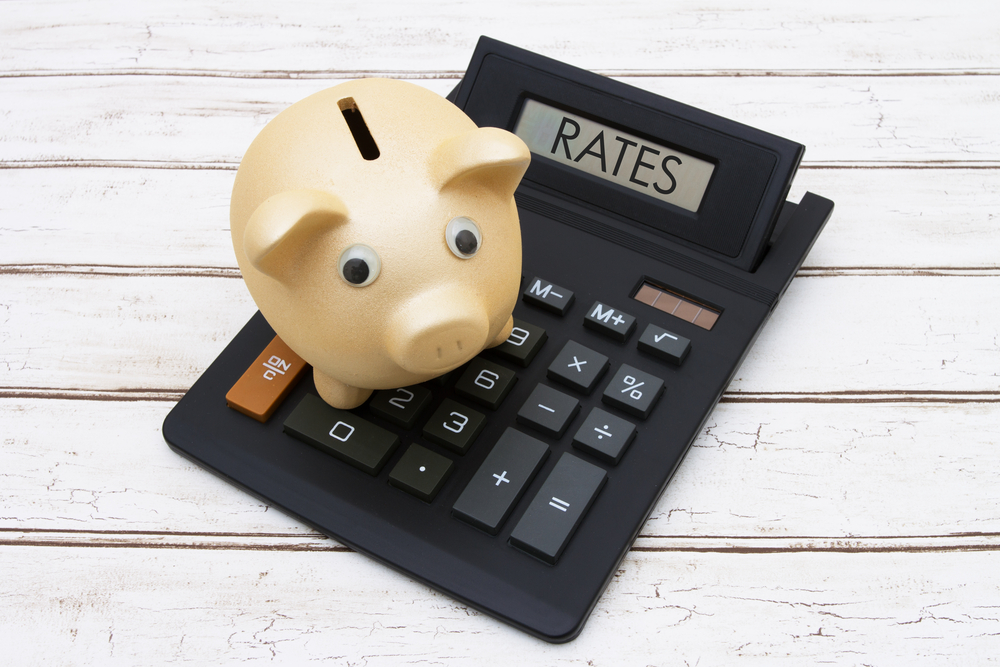News
What a base rate rise would mean for you

Rumours of an interest rate rise this week are swirling with markets now pricing in a 90% chance the Bank of England will increase the base rate to 0.75%. If it does, it will be the first time since the financial crisis the rate has been above 0.5%.
What would a base rate rise mean for you?
Savings
In theory, a base rate rise should be a good thing for savers as savings rates should go up. However, this isn’t always the case. Bank and building societies are notoriously bad at passing rate increases onto customers as witnessed after the last base rate hike in November.
According to website Savings Champion, the average rate on an open-to-all easy access account has gone from 0.35% in September 2017 to 0.42% today – a 0.07% increase despite the base rate going up by 0.25%.
The stats also show that just half of variable rate accounts have seen an increase during this period and the average increase was lower than the expected 0.25% showing that some accounts did not improve rates at all and some did not increase by the full amount.
The message for savers is clear: waiting for a base rate rise to get the best deals could cost you.
Susan Hannums, co-founder of Savings Champion, says: “If you are unlucky enough to be in one of the rock bottom accounts paying just 0.10% or less, by switching today to the best unrestricted easy access account you could increase the interest you’re earning to 1.35% – more than five times that of a base rate rise.”
Mortgages
Bank of England figures show around 40% of borrowers are on a variable or tracker mortgage and they could see the amount they pay for their home increase by as early as next month.
According to UK Finance, a rise of 25 basis points means someone with a national average £87,000 loan would pay round £11 more a month, taking repayments from £508 to £519.
But a homeowner with a £250,000 advance would pay an extra £30.69 a month, according to Andrew Montlake, director at broker firm Coreco.
Lenders are likely to waste little time in increasing rates.
Montlake says: “I suspect some to announce their changes within hours of the rate decision, if not minutes once the cheers have died down.”
In terms of current product offerings, there’s unlikely to be much change apart from tracker products which rise almost immediately.
“Fixed rate mortgage products may have already priced in such a rise and although there is no doubt lenders will probably take the opportunity to charge more, the prevailing competitive pressures mean that lenders will still be keen to remain at the top of the best buy leagues,” says Montlake.
If you have a variable mortgage the message is: don’t panic. The Bank of England has made it clear that any future rate rises are expected to be slow and gradual. But if you’re worried, it’s worth getting professional advice.
“It may be you can lock into a fixed rate sooner than you think (around six months before your rate expires) or it may even be worth breaking your current product early, paying the penalties and switching to a new rate,” says Montlake.
Investors
If the Bank of England goes ahead with the base rate rise on Thursday, it’s likely to have little impact on markets as it will have been largely priced in.
It will probably push the pound higher, which could give a small boost to domestically-focused UK companies.
Tom Stevenson of investment firm Fidelity International, says investors should not “get too hung up” on what happens this week.
Instead, he thinks they should focus on the trajectory of future rate hikes, which the Central Bank has said will be at a ‘gradual pace and to a limited extent’.
That means it will continue to be difficult to find an inflation-beating savings rate for the foreseeable future, he says.
“Over the medium to long-term then, keeping large sums in cash is almost a sure fire way to erode the value of your savings. With this in mind and with inflation likely to outpace interest rates for some time to come, the stock market continues to be your best bet for generating inflation-beating returns.”